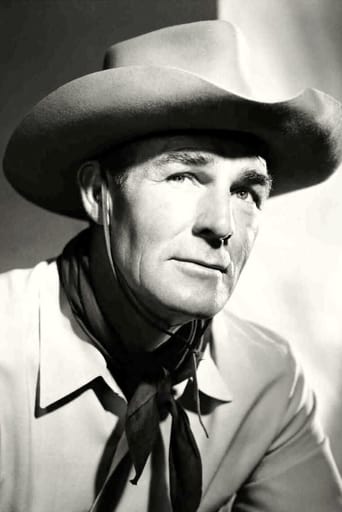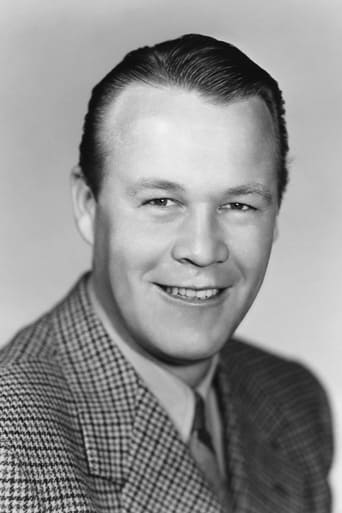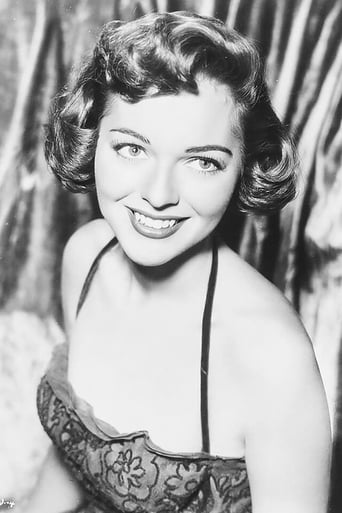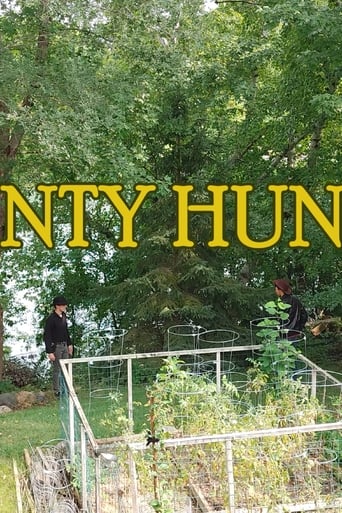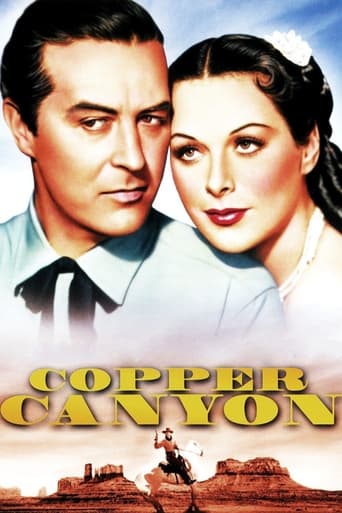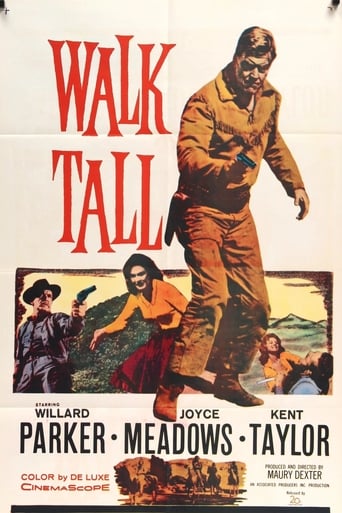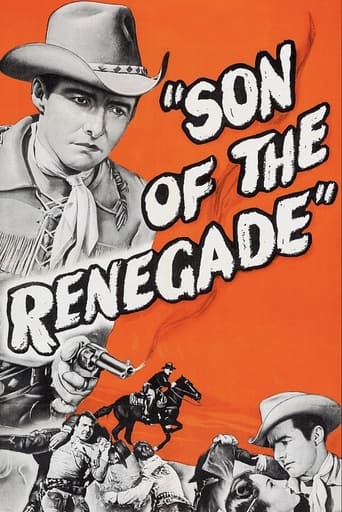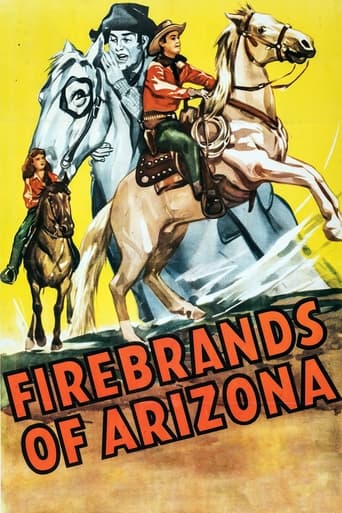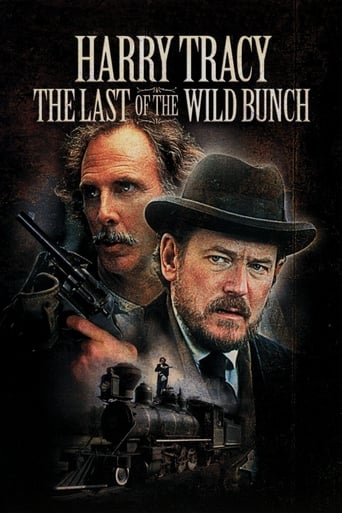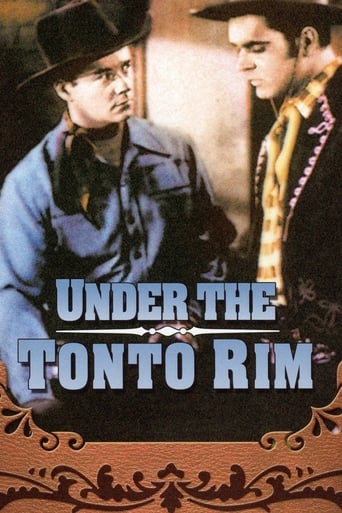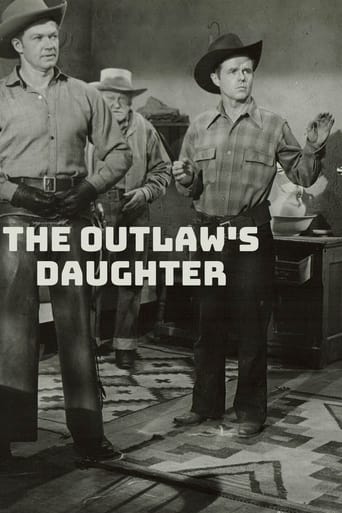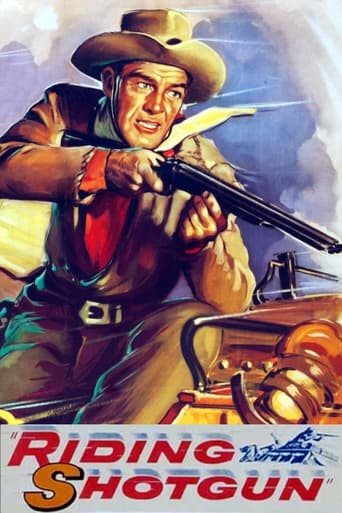
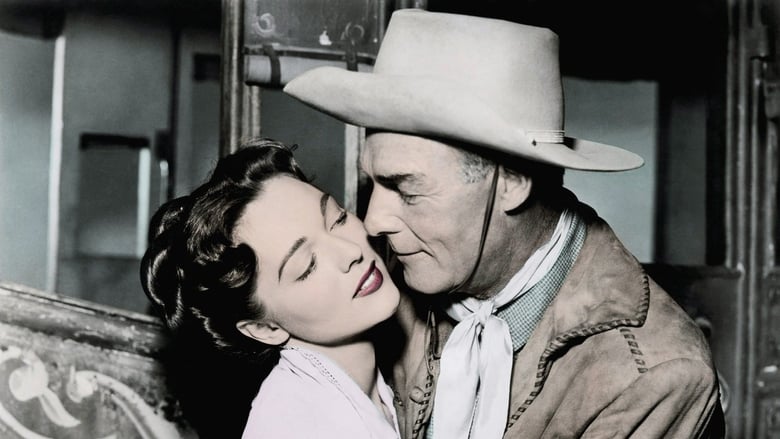
Riding Shotgun (1954)
When a stagecoach guard tries to warn a town of an imminent raid by a band of outlaws, the people mistake him for one of the gang.
Watch Trailer
Cast


Similar titles
Reviews
. . . of how to Make America Safe Again. RIDING SHOTGUN shows that towns in which everybody is willing and able to take pot shots at everyone else can really reduce their crime rates, even when plagued by felonious gangs. If firearms had been outlawed in the town of "Deepwater" before "Dan Marady's" gang of gun-slinging outlaws showed up, only Dan's outlaws would have had access to firearms after they had tricked the local lawmen into leaving town. Fortunately for the "Bank Club" casino--Dan's armed robbery target--Deepwater is an "open carry" settlement, in which everyone is armed to the teeth. (The good guys even keep "in practice" by shooting at EACH OTHER while waiting for the bad guys to show up! Fortunately, "Laconic Larry" is skilled at shooting guns out of the opposing duelists' hands when other good guys are firing at HIM!) RIDING SHOTGUN proves that Guardian Angels mostly keep good guys from getting shot in the USA, as long as they're allowed to be on a "level playing field" where everyone old enough to walk is packing a firearm. Certainly RIDING SHOTGUN can serve as a timely reminder to show your support Today for your local chapter of BANGS (Broke Americans Need Gun Stamps).
Another Randolph Scott vehicle; and it's pretty lame from the outset. He's a stage-coach guard who is kidnapped by a gang and left for dead. When he gets back to town, most everyone suspects him of being in cahoots with the baddies. So why would he go back to town by himself and risk arrest or lynching? Don't ask.What follows then is a wobbly wander through most every western cliché of the period as he falls foul of one citizen or another. The townfolk vacillate over what to do. The deputy isn't sure. Scott's character claims that the baddies are actually going to rob the town (its bank and casino) nobody buys that either.It's a pretty slow, often boring and confused plot that gradually shuffles along. There's a lot of guff about him getting a horse to ride out and warn the absent sheriff and posse. But he can't get one. A cowboy in a wezzie who can't get a horse?! For an interim he is holed-up in a small bar and on 3 separate occasions, a decent deputy turns up to talk him into surrender.In due course the gang turns up at the bank. Despite his earlier warning, nobody even sees them arrive. He gets there; there's a clumsy shoot-em-up. All is understanding and forgiveness thereafter. I'd have thought his being at the bank during its hold-up actually consolidated his guilt - but there you are.There's nothing much to recommend it. A youthful Charles Bronson makes an appearance as a baddie. That's about it.Scott made some memorable westerns in his time, he did precious little else. Perhaps inevitably then, he made a few bummers. 'The Man From Lamarie' was another. Thank heavens John Sturges came to town. And also John Wayne.
Stage-line security guard Scott is lured away from town by a member of his arch-enemy's gang and tied up to die from exposure. Escaping, he returns to find the stage robbed and everyone thinking he's in cahoots with the villains, with no one believing him when he tells them that the robbery was a ruse to get the law out on a goose-chase so that the real deal could go down. In fact, the whole town is ready to lynch Scott!Though some of the portrayals of the ignorant townspeople are clearly over-the-top, Riding Shotgun is a very well-made and well-paced little western that really delivers the goods in terms of action and especially suspense.There's a great role for a young Charles Bronson, who in his western debut (excluding an episode of The Roy Rodgers Show where he plays a boxer) as a sadistic member of the outlaw gang. The scenes where he joins the lynch mob and stokes them are pretty neat.There's also a great role for Wayne Morris, who's probably best remembered for his role as a cowardly officer in Stanley Kubrick's Paths Of Glory, as the town's remaining deputy who desperately tries to prevent needless bloodshed.
I just watched Riding Shotgun, which rounds out a Warner Bros Triple Feature DVD with two other Randolph Scott westerns of the 1950s. Despite the title, Randolph Scott rides shotgun for only the few opening minutes of the film, before falling for a ruse to lure him away from the stagecoach. The stagecoach, which is robbed and shot up, is itself another ruse to lure the sheriff and the bulk of the gun-handy menfolk away from town in a posse following a phony trail. Randolph Scott escapes the revenge-fueled fate a young (and clearly on a trajectory to stardom) Charles Bronson set for him and comes into town to warn the sheriff about the gang's plan.But upon arriving Scott finds the town has turned on him, suspecting him of being in cahoots with the stage robbers. Here is where the film's real story begins, and while certainly taking a few pages from the High Noon playbook, Riding Shotgun has its own unique twist on that tale. Here Scott is not alone in standing up to the town. Wayne Morris, as Deputy Tub, is the real voice of reason who keeps the rabble from getting too roused and turning to vigilante justice against an innocent man.Wayne Morris is always a welcome name to see in any movie's opening credits, even if he was not used to his fullest potential here. Morris' Deputy Tub reminded me a lot of Alan Hale, Jr. and I wondered if the Skipper wouldn't have been better cast in the role (he had appeared with Scott in the previous year's Man Behind The Gun).While it would be easy to dismiss Tub as being ineffective and derelict in his duty, there is a rationale and a deliberateness behind his actions. Tub actually de-escalates the tension by stepping away from the situation and indulging in lunch and later some pie and coffee. His easy dismissal of the trigger-happy Deputy Ross as getting what was coming to him shows Tub's a seasoned westerner and far from being a coward. It took experience and intelligence to approach the cornered Scott with diplomacy and a deal instead of rushing into the cantina with his guns blazing, like the greenhorn hot dog deputy Ross did earlier. He shows this unruffled calm again later when he punctures the blustering bravado of the wannabe-shotgun rider by simply handing him his gun and with a stare silently challenging him to put up or shut up.Rabble rousing and the psychology of crowds is a theme running through the film. I was reminded me of the early Lee/Ditko Spider-Man stories where one bystander's cynical remark is repeated and ratcheted up by the next person's until everyone is adding their uninformed suggestions as to what should be done and done right now. One especially telling scene is between the two young ladies expressing their outrage over the situation. At one point one girl asks the other, "isn't it exciting?" to which the other breaks into laughter and giggles, revealing their indignation is just a posture and that they're enjoying the spectacle; never mind it might result in a man being gunned down. Despite the fine clothes some of the townsfolk wear, their claim to civilization is just a thin veneer and little if anything separates them from the murderous gang, one of whose members passes among them unnoticed (except, tellingly, by a harlot).Something I found funny was how the gambling hall is filled with men playing cards, completely unaware or uninterested in the unfolding drama outside that has captivated the balance of the town. Something the producers intended to be funny was the outlaw gang's falling off their horses, but it approached slapstick and seemed out of place in the tension-filled climax. Fritz Feld provided some good comic relief as the put-upon father of a brood of kids with a nagging wife. And didn't you just know that his mirror wasn't going to survive to see the end credits? Some familiar faces in uncredited parts include Frank Ferguson (maybe best known as the apoplectic McDougall in Abbott & Costello Meet Frankenstein) and Howard Morris in his first film, playing a strange and menacing fellow fingering a rope that is far from the beloved Ernest T. Bass character he'd later play on The Andy Griffith Show (and ironically for an actor who did so many cartoon voices, he doesn't utter a word in this movie despite considerable screen time).While Riding Shotgun isn't the expected action-filled western with scenes of horseback riding and rolling stagecoaches as the title implies, it does have a compelling tension-filled story, good acting and it more than entertains in its tight 74 minutes.


